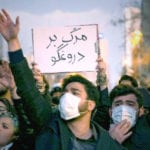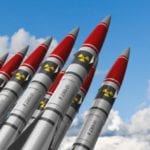 Travel
Travel  Travel
Travel  Miscellaneous
Miscellaneous 10 Intriguing Origins of Popular Sayings
 Facts
Facts 10 Little Known Facts about the Rubik’s Cube
 The Arts
The Arts Top 10 Iconic Musicals That Got Horrible Reviews
 Misconceptions
Misconceptions Ten Unexpected Truths About How Pirates Really Lived
 Health
Health 10 Most Outrageous Workout Trends
 Weird Stuff
Weird Stuff 10 Surprising Things That Were Designed to Stop Evil Behavior
 Movies and TV
Movies and TV Top 10 Ghost Adventures Episodes That Will Haunt You Forever
 Animals
Animals Ten Animals That Produce and Store Toxins in Unlikely Places
 Weird Stuff
Weird Stuff 10 Weird Things That Warp Your Sense of Time
 Travel
Travel Ten Tiny Kansas Towns with Strange Claims to Fame
 Miscellaneous
Miscellaneous 10 Intriguing Origins of Popular Sayings
 Facts
Facts 10 Little Known Facts about the Rubik’s Cube
Who's Behind Listverse?

Jamie Frater
Head Editor
Jamie founded Listverse due to an insatiable desire to share fascinating, obscure, and bizarre facts. He has been a guest speaker on numerous national radio and television stations and is a five time published author.
More About Us The Arts
The Arts Top 10 Iconic Musicals That Got Horrible Reviews
 Misconceptions
Misconceptions Ten Unexpected Truths About How Pirates Really Lived
 Health
Health 10 Most Outrageous Workout Trends
 Weird Stuff
Weird Stuff 10 Surprising Things That Were Designed to Stop Evil Behavior
 Movies and TV
Movies and TV Top 10 Ghost Adventures Episodes That Will Haunt You Forever
 Animals
Animals Ten Animals That Produce and Store Toxins in Unlikely Places
 Weird Stuff
Weird Stuff 10 Weird Things That Warp Your Sense of Time
10 Serious Misconceptions About The Iran Nuclear Deal
On April 2, 2015, President Barack Obama announced that a “historic understanding [had been] reached with Iran, which, if fully implemented, will prevent it from obtaining a nuclear weapon.” He went on to say that “if this framework leads to a final, comprehensive deal, it will make our country, our allies, and our world safer.”
The negotiating parties are Iran on one side and the P5+1 as a group on the other side. P5+1 (also known as the E3/EU+3) means the five permanent members of the UN Security Council—China, France, Russia, the United Kingdom, and the United States—plus Germany.
Basically, these negotiations are about the oversight and regulation of Iran’s nuclear program, with the P5+1 seeking to stop Iran from building nuclear weapons for at least a decade in exchange for the easing or lifting of economic sanctions on Iran.
There are many serious misconceptions about what the parties have agreed to, what still needs to be done, who has the power in these negotiations, what issues exist beyond the ones discussed at the negotiating table, and what effect an agreement might have on world politics and safety.
10There’s A Deal Already In Place
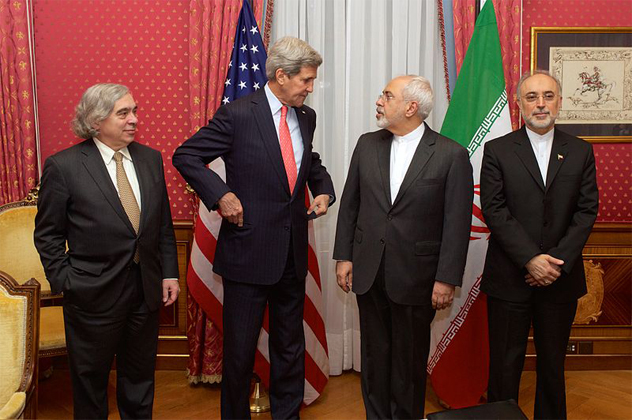
This framework appears to be a detailed agenda or outline for the final talks. It’s not a deal or a tentative deal. Nothing is concrete until a final agreement is signed by those in a position of authority for each side. That leaves everything in play as tradeoffs are made to resolve many controversial issues by the current negotiating deadline of June 30, 2015. However, the US has hinted privately that not all Iranian commitments have been announced publicly. If an agreement is signed by the deadline, it will be called the Joint Comprehensive Plan Of Action (JCPOA), replacing an expiring interim deal from 2013.
When the US released a “fact sheet” outlining key parameters to which both sides had supposedly agreed, Iranian Foreign Minister Mohammad Javad Zarif immediately objected. “The Americans put what they wanted in the fact sheet . . . I even protested this issue with [US Secretary of State John] Kerry himself,” said Zarif. He further warned, “Whatever work we have on the nuclear program can be restored . . . Our knowledge is local and no one can take that away from us.”
After initially remaining silent, Ayatollah Khamenei said on April 9 that he supported his negotiators but also disputed the US view. “[The American] ‘fact sheet’ was wrong on most of the issues,” he said. Khamenei claimed that he was neither for nor against a deal at this point because it depends on how the details play out. But he did express pessimism about negotiating with the US while his supporters chanted, “Death to America.”
Khamenei is sending mixed messages that he wants a deal, but he may be giving himself cover if it doesn’t work out. A recent demonstration by anti-deal protesters was stopped for lack of a permit when anti-West protests are usually welcomed in Iran. Powerful clerics and senior officials, including the commander of Iran’s Revolutionary Guards, have publicly supported the framework. However, Khamenei said that President Hasan Rouhani, and occasionally Foreign Minister Zarif, determine which terms are acceptable to Iran. “Some say the details of the negotiations are supervised by the leader, but this is not accurate,” Khamenei maintained.
9A Final Agreement Will Prevent Iran From Getting A Nuclear Bomb
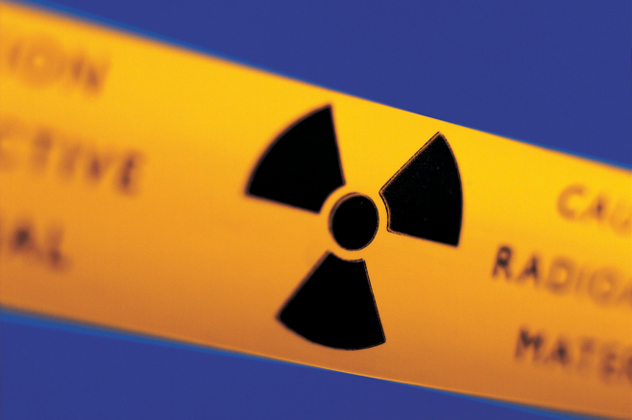
When the US gave up on eliminating Iran’s nuclear program, the new goal became to lengthen the “breakout time” for Iran to get the material to make a nuclear weapon—from a couple of months to at least one year. The P5+1 believe that this will give inspectors enough time to detect bomb-making activities while they can still be stopped. The Iranians deny that they want nuclear weapons.
Even if Iran ultimately consents to strict limits on its nuclear program, this will at best delay their ability to make a nuclear bomb for about 10–15 years. “What is a more relevant fear would be that in year 13, 14, 15, they have advanced centrifuges that can enrich uranium fairly rapidly [to make nuclear weapons], and at that point the breakout times would have shrunk almost down to zero,” President Obama admitted.
Still, he’s willing to risk it for the potential reward of a friendlier relationship. “Iran’s defense budget is $30 billion. Our defense budget is closer to $600 billion. Iran understands that they cannot fight us. . . . the [Obama] doctrine is: We will engage, but we preserve all our capabilities,” he explained.
Some nonproliferation experts, including Jeffrey Lewis and Thomas Moore, believe that breakout time may not stop Iran from building a bomb that escapes detection. They’re more concerned about covert facilities and smuggled materials that inspectors won’t catch. “We’ve never had an instance generally speaking where a state chooses to cheat at a declared site,” said Moore. According to Lewis, another concern is that enforcement has never been written into similar treaties or agreements. If the P5+1 are able to inspect centrifuge factories, uranium mines, and processing mills, as the US claims, that would be an unusually good provision as long as Iran abides by it.
But there are still serious concerns with the monitoring program. For example, the framework seems to reduce Iran’s commitments under the Additional Protocol (AP) of the Nuclear Non-Proliferation Treaty, which enhances the inspectors’ ability to find undeclared nuclear sites. Iran has already violated the AP at least once when their secret Fordow nuclear site was discovered in 2009. Also, some of the equipment and material that Iran wants to keep has only one use: making a nuclear weapon.
8Time Makes No Difference To The Issues
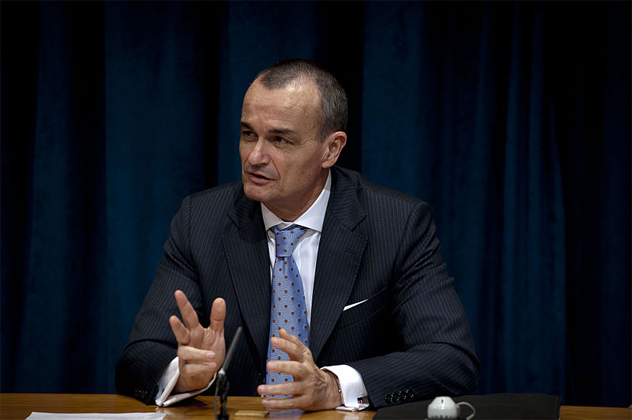
Reportedly, US Secretary of State John Kerry kept pressing his negotiators to speed up agreement on a framework to meet the Obama administration’s artificially imposed deadline of March 31, 2015, which the Iranians didn’t share. Kerry insisted that time pressure was necessary to convey to the Iranians that the talks wouldn’t go on forever. “[The decisions] don’t get any easier as time goes by,” he said.
The French openly questioned his strategy, suggesting that it was leading to ill-advised compromises just to get the deal done. Gerard Araud, French ambassador to the US, tweeted on March 20, “Repeating that an agreement has to be reached by the end of March is a bad tactic. Pressure on ourselves to conclude at any price.” Ultimately, the French didn’t stop the announcement of the framework even though they initially wanted tougher terms.
However, they were right about one thing: Time is a potent weapon in a negotiation that may shift power to the side without the time pressure. But in this negotiation, the power of time cuts both ways. Despite any differences among the P5+1 partners or between the Obama administration and the US Congress, Iran is also facing a time factor that may impact the negotiations and any subsequent deal.
According to French newspaper Le Figaro, Western intelligence sources have said that the Ayatollah Khamenei, aged 76, has terminal prostate cancer that has spread to other parts of his body. Supposedly, doctors estimate that Khamenei has approximately two years to live. If true, no one actually knows whether he will outlive his prognosis, die unexpectedly early, or become too incapacitated to rule Iran at some point.
Khamenei’s health may not only affect the negotiations, but also the implementation of any deal. Will a new leader in Iran be more or less likely to abide by a long-term agreement? Like Obama, Khamenei’s legacy to his country may be somewhat defined by the outcome of these negotiations. For Obama, it’s a gamble as to whether the Obama doctrine will work. For Khamenei, it’s getting sanctions lifted to remove the country’s international pariah status and restore Iran’s economy.
7The US Can Dictate Terms
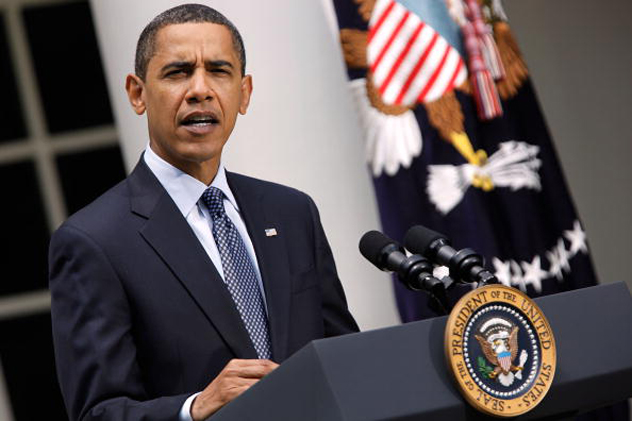
Although the US has the military strength to defeat Iran, America doesn’t necessarily have the power to dictate terms in a nuclear deal. Iran can effectively silence internal critics and negotiate with one voice if it chooses. The US doesn’t have that advantage.
America is negotiating as part of a group, so other countries’ goals and relationships have to be considered. For example, Russian president Vladimir Putin reportedly threatened nuclear attack against the US and its allies if they try to undo Russia’s annexation of Crimea from Ukraine or send troops into Baltic states to protect them from Russian aggression. The European Union and the US have already imposed economic sanctions on Russia for its actions in Ukraine. That hostility could affect the negotiation and the enforcement of any Iran deal.
Meanwhile, Israel and members of the US Congress have openly criticized the Obama administration’s negotiations with Iran. The administration recently announced that both houses of Congress will have a chance to review the final terms of a nuclear agreement before any sanctions are lifted. The US also has a complicated relationship with Iran because they’re fighting together in Iraq to defeat ISIS.
Some P5+1 members have questioned whether the Obama administration is voluntarily giving up some of its negotiating power. When Iran refused to dismantle any of its nuclear facilities, comparing its nuclear program to America’s “Moon shot,” the US changed its goal to negotiating a one-year breakout time instead. The US also let Iran know early on that it could push back against the UN Security Council’s demands, including one for Iran to stop enriching uranium, which the US characterized as a “maximalist” position. It appears that both sides have made significant concessions. However, Iran hasn’t conceded anything that stops it from eventually building nuclear weapons, while the US has potentially yielded the power of sanctions.
Despite the announced framework, the two sides have publicly disagreed on when sanctions will be lifted, how long uranium enrichment will be restricted, how much latitude inspectors will have, what will happen to Iran’s current stockpiles of enriched uranium, how much research and development can be done on advanced centrifuges (to enrich uranium more efficiently), and whether Iran must disclose any past research into nuclear weapons.
6The Iranian People Are Ecstatic About The Framework
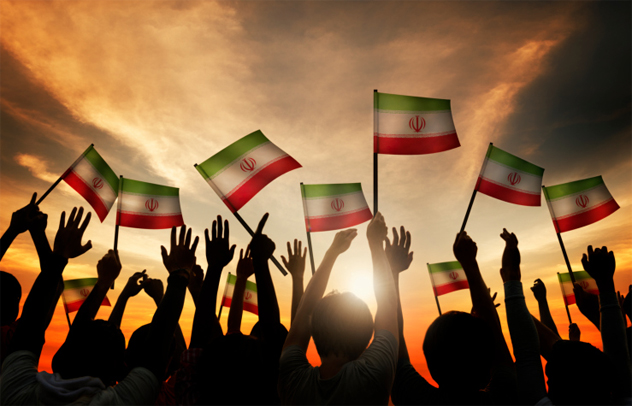
After the framework was publicly announced, the Iranian people were seen dancing in the streets and honking their horns. Some Iranians took selfies with Obama on the TV screen behind them during his Rose Garden speech on the subject. Even businessmen expressed optimism that sanctions would soon be eased. Of course, many in Iran also felt relieved that military action against them appeared to be far less of a threat with news of an accord.
However, former Iranian president Abolhassan Bani-Sadr believes that the public is celebrating because the state-controlled media misrepresented the terms of the framework. According to Bani-Sadr, the text was translated incorrectly into Persian. The public was told that the P5+1 agreed to revoke all sanctions immediately. Instead of using the Persian word for “suspension,” the translation used the word “motevaghe,” meaning “stoppage” of sanctions. Even so, Bani-Sadr feels that the public celebration was somewhat muted and revealing. He says the public recently cheered more for Iran’s winning soccer team than for the announcement of the framework.
If there was a misrepresentation of the framework, then it’s difficult to assess how Iranians feel about a potential nuclear deal. However, Bani-Sadr lives in exile in France, so it’s unclear if he can really understand the mood of the Iranian people from such a distance.
5Israel Is The Only Middle Eastern Country That Doesn’t Want A Deal
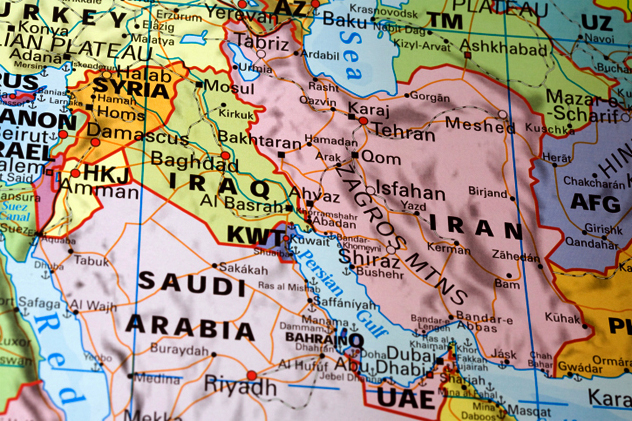
Although Israel is the only Middle Eastern country to publicly criticize the Iran nuclear negotiations, many Arab countries in the Middle East are seriously concerned about Iran’s growing influence in the region and its closer relationship with the US. On March 8, 2015, Ali Younusi, an adviser to Ayatollah Khamenei, declared in a Tehran seminar that his country will never leave Iraq. “Iran is an empire once again at last, and its capital is Baghdad,” said Younusi. “It is the center of our civilization, culture, and identity as it always was along the course of history.”
In Iraq, the US relationship with Iran is an uneasy one. With the Iraqi army unable to protect its country, the US is providing limited air support to Iran-backed Shia militias on the ground to rid Iraq of the Islamic State (ISIS). Sometimes, the US isn’t even in the loop about attacks by these militias, who often punctuate their victories with atrocities against Iraq’s Sunni population. Although the militias are defeating ISIS in the short term, they’re so firmly entrenched in Iraq that some members may eventually secure seats in Parliament, leading to greater Iranian influence.
Using proxies, which are sponsored militant groups such as Hezbollah, Iran is extending its reach beyond Iraq. “Today we see signs of the Islamic revolution being exported throughout the region, from Bahrain to Iraq and from Syria to Yemen and North Africa,” said Qassem Suleimani, head of the Quds Force of Iran’s Revolutionary Guards.
Arab neighbors such as Saudi Arabia are taking that threat seriously. Instead of depending on the US for protection, Saudi Arabia is bolstering its own military forces and leading a coalition of Sunni Muslim countries to bomb the Iran-backed Houthi rebels in Yemen. Saudi Arabia has also signaled that it wants the same nuclear rights as Iran. That has sparked fears among US and Arab government officials of a Middle East nuclear arms race.
The Saudis have already inked nuclear deals with South Korea, Argentina, China, and France. For now, the Saudis just want to build nuclear reactors to produce electricity in their country. But they’re not ruling out the possibility of developing nuclear weapons capability. Even if they don’t build a nuclear bomb on their own, they can likely buy what they need from their close ally, Pakistan.
4This Is A Peace Agreement
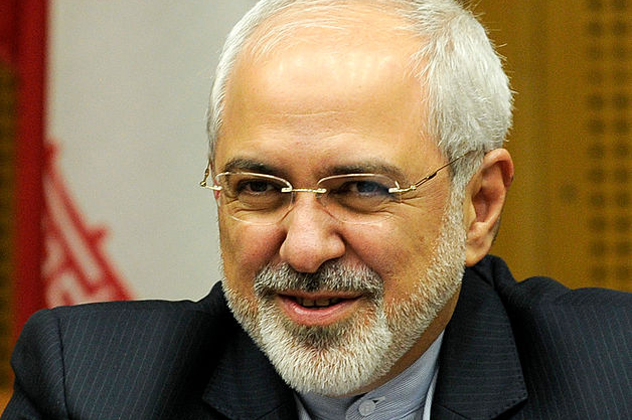
A nuclear deal will not be a peace agreement of any kind between Iran and members of the P5+1. The deal is designed to be a temporary agreement aimed specifically at reigning in Iran’s ambition to build nuclear weapons in exchange for lifting certain sanctions against the country. These negotiations will not bring peace to the Middle East or stop Iran’s terrorist activities.
“Iran-US relations had nothing to do with this,” said Iran Foreign Minister Zarif after the framework was announced. “This was an attempt to resolve the nuclear issue . . . We have serious differences with the United States.”
In a March 2015 speech, Ayatollah Khamenei was even more adamant that the negotiations were about nuclear issues only. “We do not negotiate with America on regional issues,” he said. “America’s objectives in the region are the opposite of our objectives. We want security and peace and people’s sovereignty, but American policy is to create insecurity and distress . . . On regional issues or domestic issues and weaponry issues, we absolutely do not have any negotiations with America.”
Recently, Khamenei softened his position slightly while demanding that sanctions be lifted immediately upon signing a nuclear deal. “[If] the [US] stops its bad behavior [meaning past misconduct against Iran], one could expand this experience to other issues.”
However, former Iranian president Abolhassan Bani-Sadr maintains that Khamenei can’t normalize relations with the US because his regime’s entire identity is focused on opposition to America.
3Iran Can’t Cheat
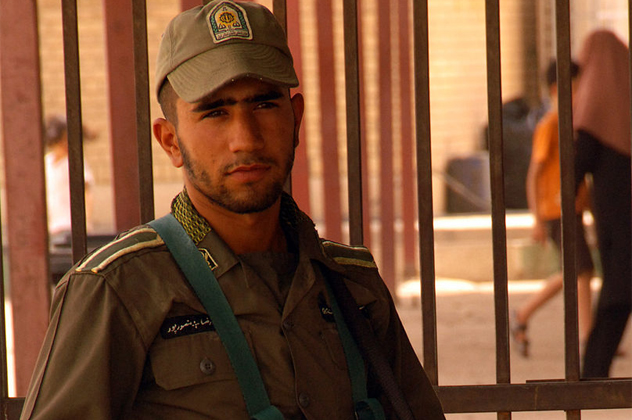
Although nonproliferation expert Jeffrey Lewis agrees that the monitoring provisions outlined in the US fact sheet are strong, he warns that a nuclear deal may not stop Iran from operating a secret nuclear program that’s completely off the books. If so, the intelligence community, not the International Atomic Energy Agency (IAEA) inspectors, will have to discover it. According to Lewis, this deal isn’t likely to have much effect on Iran’s ability to build a nuclear bomb.
In any case, inspectors don’t have unrestricted access to the entire country. They can only go to undeclared “suspected” sites after submitting a request to the Iranians. If Iran says no, then an undefined dispute mechanism kicks in. However, inspections aren’t as frightening as they sound. Usually, two inspectors arrive in a rented car and politely request permission from the Iranians to look at the facilities. Many times, these inspectors simply review hours of security camera footage.
In addition, Ayatollah Khamenei has publicly said that Iran won’t let nuclear inspectors into military sites. In fact, Iran still hasn’t responded adequately to 12 concerns reported by the IAEA in 2011 about possible military dimensions of the country’s nuclear program, which may affect the calculation of breakout time. “We are still not in a position to conclude that all nuclear material in Iran is [for a] peaceful purpose,” said Yukiya Amano, director-general of IAEA.
These aren’t academic exercises. “Iran’s been caught in several cases cheating or building secret nuclear sites,” said David Albright of the Institute for Science and International Security. The Iranians even brag about it. “Of course we bypass sanctions,” declared President Rouhani on national television in August 2014. “We are proud that we bypass sanctions because the sanctions are illegal.” Will they take the provisions of this nuclear agreement more seriously?
There’s also concern that a one-year breakout time isn’t sufficient for the P5+1 to complete the bureaucratic process of validating a suspicion, talking to the Iranians about it, filing a grievance with the UN Security Council, and having them agree to take action. By that time, sanctions might be meaningless.
So far, the US hasn’t correctly predicted when other countries will develop nuclear weapons. They got it wrong with the Soviet Union, China, India, Pakistan, and North Korea.
2Sanctions Can Snap Back If Needed
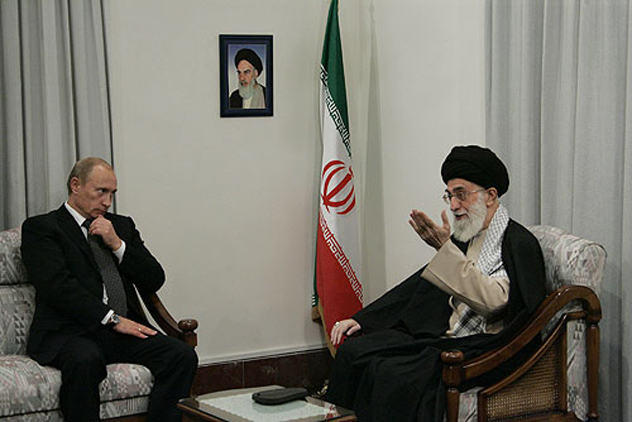
Several days after the framework was announced, Ayatollah Khamenei insisted publicly that all sanctions be lifted on the day a nuclear deal is signed. The P5+1 stance is that sanctions will be suspended in stages as Iran satisfies its obligations under the deal, which could take months.
When the proper requirements have been met, the European Union (EU) can suspend its oil embargo as well as its remaining economic and financial sanctions. President Obama must waive similar US sanctions at the same time. Otherwise, European companies that do business with Iran might face legal consequences. Also, banks are unlikely to do business with Iran unless all economic sanctions are removed.
The mechanisms to reapply the EU and US sanctions will remain in place so they can snap back. However, as mentioned earlier, the US Congress has been given review power over a nuclear agreement with Iran, which has impacted President Obama’s ability to waive some sanctions on his own.
But US sanctions aren’t the priority for Iran. According to Robert Einhorn, a nuclear proliferation expert, Iran’s top goal is to get UN sanctions—which mostly deal with banned transfers of arms and technology—lifted immediately. That could provide Iran with the opportunity to get equipment for a nuclear weapon. “The US and its partners know Iran procures this stuff illicitly and they don’t want the restrictions on that removed prematurely,” Einhorn said.
Furthermore, Russia isn’t likely to agree to a snapback of UN nuclear sanctions. Without an automatic reversal mechanism, UN sanctions can only be restored through a Security Council vote, giving Russia veto power and political leverage over other members of the P5+1. So any relief from UN sanctions for Iran would likely be permanent.
To keep Iran from developing atomic weapons, the US and its allies may also use covert tactics that fall outside of a nuclear agreement. They’ve already sabotaged equipment purchased by Iran for its nuclear facilities and engaged in cyber attacks to disable its centrifuges. It was also alleged that Israel had assassinated some of Iran’s top scientists, but those murders abruptly ended when the US publicly condemned the attacks.
1A Final Nuclear Deal Will Be Legally Binding In The US
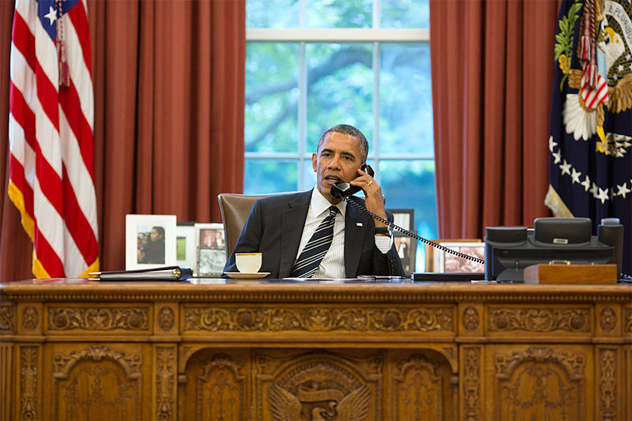
As of this writing, a nuclear deal with Iran would not be legally binding on the P5+1 or Iran. “The only things Iran is legally obligated to uphold are contained in its safeguards agreement and additional protocol with the IAEA and its binding [Non-Proliferation Treaty] obligations,” said nonproliferation expert Thomas Moore.
From a US perspective, President Obama initially decided to use an “executive agreement” for the deal so that it wouldn’t need approval of the US Congress. That takes away their veto power if they don’t like the terms. Congress now will weigh in on the agreement, but a full veto would still be incredibly difficult to accomplish. A US president has the latitude to characterize a deal with a foreign government as an executive agreement if US laws don’t have to be changed to accommodate it. If the law must be changed, then the deal would be a “treaty,” requiring approval by at least two-thirds of the Senate. Former president Bill Clinton also used an executive agreement for a nuclear deal with North Korea in 1994.
By structuring an agreement this way, future US presidents have the option to abandon the deal. “I think [US Secretary of State John] Kerry is probably right that a future president is likely to honor the agreement as long as Iran does,” said Gary Samore, Obama’s former chief adviser on weapons of mass destruction. “But the fact that the agreement is not legally binding gives a future president or Congress more flexibility to seek to modify or abrogate the agreement. The same is true of Iran.”
The issue of lifting US sanctions can get tricky, though. Technically, President Obama can only waive sanctions. It takes a Congressional vote to permanently remove them.





